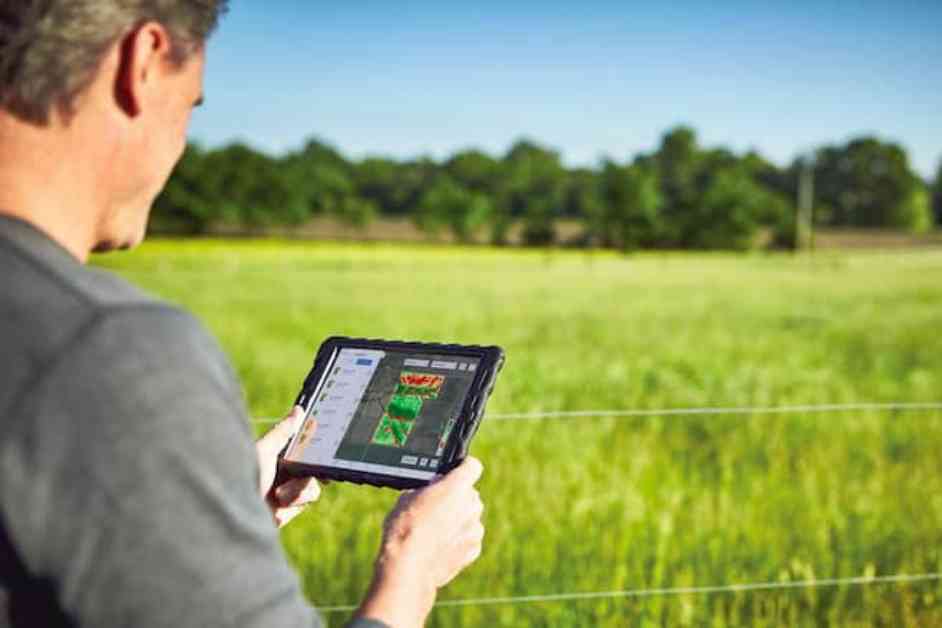In the modern digital and agricultural era, artificial intelligence is revolutionizing how farmers manage their crops and anticipate harvest yields. From advanced algorithms to interactive platforms, AI has emerged as a powerful ally in accurately predicting agricultural productivity. This technology not only analyzes historical and current data on weather conditions, soils, and crops, but also employs sophisticated predictive models to offer detailed forecasts and strategic recommendations for flowers and crops.
Climate Corporation, a subsidiary of Bayer, is a company specializing in the development of digital technologies for agriculture. Founded in 2006 and based in San Francisco, California, Climate Corporation focuses on providing data-based advanced tools to help farmers improve crop productivity and management. In August 2013, Climate Corporation introduced FieldView, a platform that CEO David Friedberg described as «a platform that uses artificial intelligence, data analysis, and predictive models to help farmers optimize crop management and improve agricultural productivity. FieldView collects data from multiple sources, such as satellite images, weather stations, field sensors, and historical crop data. Using this data, the platform generates real-time insights and personalized recommendations for farmers.»
While FieldView was launched eleven years ago, it wasn’t until May 13, 2024, that Friedberg confirmed, at an official ceremony, the implementation of artificial intelligence in its operation through data integration. Today, according to him, FieldView uses AI algorithms to analyze data from various sources, such as field sensors, satellite images, historical farm records, weather data, among others. Based on data analysis and predictive models, it uses AI to generate personalized agronomic recommendations. For example, it can recommend the optimal amount of fertilizer based on soil conditions and crop needs, or suggest the right time for planting or harvesting.
Additionally, the implementation of artificial intelligence allows it to use user-friendly interfaces and mobile applications that enable farmers to interact with data and AI-generated recommendations intuitively. This facilitates the adoption and effective use of technology by farmers in their daily operations.
How does it work?
FieldView collects agricultural data from various sources to provide accurate and updated information to farmers. These data include:
– Weather Data: Uses nearby weather stations and historical data to monitor and predict weather conditions relevant to crops, such as temperature, humidity, precipitation, and wind speed.
– Soil Data: Through field-installed sensors, FieldView collects information on soil composition, including available nutrients, pH, and moisture levels. This helps farmers adjust soil management practices and optimize fertilization.
– Satellite Images and Drones: Uses high-resolution satellite images and data obtained by drones to conduct detailed analyses of vegetation cover, crop health, early detection of problems, and assessment of planting uniformity.
– Agricultural Equipment Data: Integrates information from agricultural machinery equipped with sensors to monitor performance during harvesting, precise input application, and other field activities.
– Data Processing and Analysis: Once collected, the data is processed using advanced artificial intelligence algorithms and data analysis to generate useful insights and recommendations for farmers:
– Predictive Models: FieldView uses predictive models to anticipate crop yields based on current and previous field conditions. These models take into account variables such as weather, soil health, and agronomic practices.
– Risk and Opportunity Analysis: Identifies and evaluates potential risks such as pests, diseases, or adverse weather conditions that may affect crops. Provides recommendations to mitigate these risks and leverage improvement opportunities in crop management.
– Personalized Recommendations: Based on collected data and predictive models, FieldView offers personalized recommendations for planting, fertilization, irrigation, and pest control. These recommendations are designed to optimize agricultural production and minimize environmental impact.
– Interface and Access: FieldView provides farmers with an intuitive and easy-to-use interface, accessible through mobile applications and web platforms. It allows users to view real-time data, manage agricultural operations from any location, and make informed decisions on the go.
Benefits to farmers
Cristian Niño, a senior horticulture technician who has worked as an agricultural technician conducting field visits and advising on the use of biological products and crop monitoring, was one of the people who led studies in Colombia to use it. According to the expert, these are some of the benefits of implementing artificial intelligence in the operation of Fieldview.
– Resource Optimization: Efficient use of water, allowing farmers to monitor soil moisture and adjust irrigation patterns to optimize water use. Precise fertilization, providing accurate recommendations on fertilizer application based on detailed soil analysis and crop nutritional requirements.
– Productivity Improvement: Yield prediction allows farmers to plan and adjust their agricultural operations to maximize production. Monitoring crop health, detecting crop health problems such as pests, diseases, or early water stress, facilitating quick and effective responses to minimize losses.
– Proactive Risk Management: Agricultural risk analysis, evaluating and managing risks such as extreme weather conditions, pests, and diseases, providing alerts and recommendations to mitigate these risks.
– Environmental Sustainability: Reducing environmental impact, facilitating more sustainable agricultural practices by optimizing the use of agricultural inputs and minimizing environmental pollution. Improved natural resource management, helping to conserve natural resources such as soil and water, improving long-term land management.
– Facilitates Informed Decision-Making: With personalized recommendations for planting, fertilization, pest management, and other agronomic practices, based on data and detailed analysis. Additionally, real-time access to field and crop conditions from any location, using mobile devices or web platforms.
How to acquire FieldView?
To acquire FieldView, you must first visit the website https://www.climatefieldview.es/. Among the options available is to contact a sales representative who will provide all the information and answer your questions. You can then request a free demonstration of FieldView use, and they will visit the location you specify on the scheduled day and time. Once the test is done, the sales representative will guide you through the process of acquiring FieldView.
Climate Corporation no longer posts prices on its website, however, these are the plans it offers:
– FieldView Pro: This basic plan typically offers access to fundamental FieldView features, such as yield map visualization, application mapping, and field data management. It is ideal for farmers looking to start with the platform and gain a basic understanding of their fields and operations.
– FieldView Plus: This intermediate plan generally includes all the features of the Pro plan, but with additional functionalities such as advanced data analysis, more sophisticated agronomic planning tools, and the ability to share data with agricultural consultants or other collaborators. It is suitable for farmers looking to further optimize crop management and improve strategic decision-making.
– FieldView Prime: This premium plan usually offers all the features of the Pro and Plus plans, in addition to advanced functionalities such as custom reports, API integrations to connect with other agricultural systems, and access to priority technical support. It is ideal for farmers with larger or more complex operations that require detailed data analysis and advanced customization of FieldView tools.





